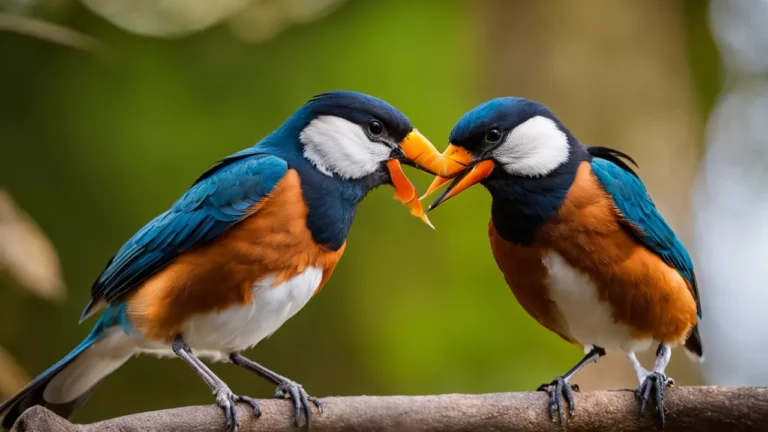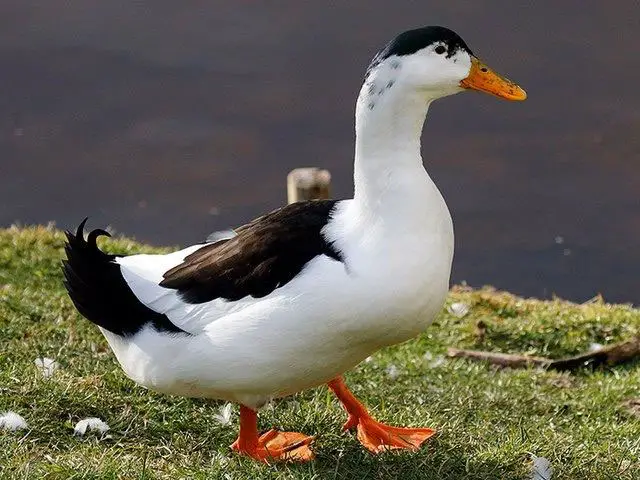Birds are amazing animals with a wide range of unique habits. Birds cleaning or rubbing their beaks on branches, twigs, and other surfaces is one that you may have seen. You’re not the only one who has questioned why they carry out this peculiar ceremony!
A lot of people who watch birds are interested in knowing why and how this unusual behaviour occurs.
To put it briefly, there are a few basic reasons why birds wipe their beaks: cleaning, maintenance, and communication. Continue reading to find out the specifics of why birds clean and massage their beaks, as well as what research has revealed about this behaviour.
Birds that wipe their beaks stay clean and healthy.
Beak wiping is one of the meticulous grooming behaviours of birds that often draws our notice. This apparently little action helps birds remain clean and preserve their general health in a number of significant ways.
Eliminates parasites and debris
Birds wash their beaks primarily to get rid of parasites and detritus. Birds’ beaks may become coated with dirt, dust, or even tiny food particles while they seek for sustenance. Birds can keep their beaks clean and avoid the accumulation of potentially hazardous contaminants by using their beaks to wipe away undesired things.
Furthermore, parasites may be encountered by birds while they forage or investigate their environment. These parasites have the ability to irritate or maybe spread illness by attaching themselves on the beak. Birds may lower their risk of infestation and disease transmission by using their beaks to wipe away any parasites that might be present.
Distributes Oils That Are Beneficial
Birds have unique glands that release oils close to the base of their beaks. By supplying moisture and keeping the feathers from drying up and breaking off, these oils aid in the maintenance of the beak and feathers.
By distributing these advantageous oils over the whole length of their beaks, birds preserve and maximise the functionality of their beaks when they clean them.
Birds aid in waterproofing their feathers by dispersing these oils. For birds that live in the water, like ducks and penguins, this is especially crucial since it keeps them dry and afloat.
If their beaks aren’t cleaned on a regular basis, these birds can become waterlogged or lose their ability to float.
Stops the Spread of Disease
Birds wipe their beaks to stop the spread of illness, which is another important reason for this behaviour. Throughout their everyday lives, birds come into contact with a variety of germs and diseases, which may quickly build up on their beaks.
Birds may lower their risk of infection or sickness by eliminating any possible disease-causing substances with their beak wipes.
In addition, it’s common to see birds wipe their beaks after eating. By doing this, they help to get rid of any food residue from their beaks and stop the development of germs and fungus that might cause infections or other problems with their dental health.
It Aids in Preserving the Condition of the Beak
Birds often wipe their beaks for a number of significant reasons. This behaviour is primarily motivated by the need to keep their beaks in good shape. For birds, the beak is an essential instrument that they use for eating, grooming, and even self-defense.
As such, it is imperative that they maintain the best possible condition for their beaks.
Forms the Beak
Birds’ beaks are shaped in part by the saliva they secrete. The beak stays smooth and streamlined because of the continuous rubbing and wiping against different surfaces, which helps to wear down any sharp or uneven edges.
This is especially crucial for beak-dependent birds, like parrots and finches, who break seeds for sustenance. They can effectively split open seeds and get the nutritional contents because to a well-shaped beak.
This behaviour contributes to the beak’s overall structural integrity in addition to its shaping function. Birds cleaning their beaks assist to avoid excessive growth or damage, just as people frequently trim their nails to keep them from being too long or brittle.
Birds may continue to go about their everyday lives without difficulty or pain if they take care of their beak.
The Surface’s Conditions
The act of conditioning the surface is another significant reason why birds wash their beaks. Keratin, the same substance found in human hair and nails, makes up the beak. This keratin may grow brittle and dry over time.
Birds may help maintain the surface hydrated and healthy by brushing their beaks on rough surfaces to remove extra keratin.
Wiping the beak may also aid in clearing it of any dirt or food particles that may have adhered to it while eating. This lowers the chance of infection or illness by keeping the beak clean and clear of possible germs.
Defining Space and Engaging in Social Exchange
Ever wonder why birds clean their beaks with their hands? This apparently simple behaviour really accomplishes a number of crucial tasks, including as social communication and territorial marking. Let’s investigate the unexpected causes of this intriguing behaviour.
Territorial Markers in Visual Form
Birds wash their beaks in part to indicate their territory visually. Birds make territorial claims by rubbing their beaks against trees, rocks, or other objects. By making these markings visible, other birds are warned that this region is already inhabited, which lowers the likelihood of territorial conflicts.
It resembles posting a “No Trespassing” sign for birds of prey.
Scent-Based Signals
The emission of smell signals is another explanation for beak cleaning. Birds leave their distinct aroma behind when they brush their beaks on items because scent glands are situated close to their beaks.
Birds may communicate with one another by using their smell to let other birds know they’ve been nearby. It’s similar to leaving a handwritten, “I was here” business card behind.
Social Cohesion
Birds may also use beak wiping as a way to strengthen their social bonds. Some bird species brush each other’s feathers with their beaks a behaviour called allopreening. This grooming practice supports flock cohesiveness, fosters trust, and fortifies social ties.
Therefore, it is not only a cleaning session when birds are seen wiping their beaks on one another—rather, it is a means of strengthening their bond.
It’s crucial to remember that other animals can also wipe their beaks. Similar behaviours are used by other species to mark territory and communicate with one another, including rodents and primates. Thus, the next time you see a bird cleaning its beak, keep in mind that it’s an interesting behaviour serving a variety of functions rather than simply a random deed.
Final Thoughts
For several vital reasons, birds clean and rub their beaks. The behaviour cleans and maintains the beak in optimal working order by clearing away debris and greasy secretions. Additionally, it enables birds to maintain and polish their valuable tools.
Lastly, beak wiping leaves behind chemical and visual cues that promote social cohesiveness and communication. You’ll know why birds perform this fascinating ritual the next time you see them!
Birds cannot survive without strong, functional beaks, and beak cleaning enables them to maintain hygiene and communicate. Our feathery companions have a distinct biology and social structure, which is shown by their intriguing behaviour.






